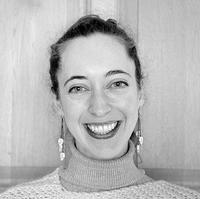Dr Bronwyn Tarr

Research Affiliate
Bronwyn Tarr is working with The Social Body Lab within the Centre for the Study of Social Cohesion.
Bronwyn is originally from Namibia, and moved to the UK to read towards two degrees at the University of Oxford, funded by a Rhodes Scholarship. Her academic experience includes an BSc(hons) in evolutionary biology (University of Cape Town), an MSc in environmental sciences (Oxford), and a DPhil (Oxford) in social and evolutionary psychology—focussing on the evolution of dance. She is also trained in fine art, as well as classical ballet, contemporary and Latin dance. Based in Professor Robin Dunbar’s Social and Evolutionary Neuroscience Research Group, Bronwyn’s doctoral research combined her passion for dance with her curiosity about human nature and evolution of social behaviours. Her thesis centred on evolutionary theories of our species’ love-affair with music and dance. Working with people in Brazil, Oxford and Barcelona, she has researched how dancing in synchrony acts as a social glue, causing the release of endorphins and the experience of a collective ‘high’.
During her doctoral studies Bronwyn began collaborating with Dr Emma Cohen at the Institute for Cognitive and Evolutionary Anthropology (ICEA), now the Institute of Human Sciences. Their collaborative research was initially based at Dr Cohen’s research site in Northern Brazil, and involved testing the social bonding and pain threshold effects of synchronous versus non-synchronous movements with a sample of Brazilian teenagers. Thereafter, Bronwyn joined Dr Cohen as a postdoctoral researcher, during which they conducted a Virtual Reality study on synchrony and social closeness (based at Barcelona University, in collaboration with EventLab). Bronwyn is now an Associate Professor at the London Interdisciplinary School.
A believer in Open Science, Bronwyn has delivered a number of interactive public talks, Café Scientifique lectures, spoken on radio and podcasts, written popular science articles on her research and featured in various documentaries about dance. During the pandemic, she ran an interdisciplinary creative research project (Moving Together) in collaboration with an Oxford-based dance company: Justice in Motion. The project explored the facets of loneliness, and it’s opposite, and involved the production of an award-winning film, and documentary.
Selected published papers:
Bamford JS, Tarr B, & Cohen E. (2022). Processing fluency for visual synchrony perception. PsyArXiv. Preprint.
Savage PE, Loui P, Tarr B, Schachner A, Glowacki L, Mithen S, & Fitch T. (2021). Music as a coevolved system for social bonding. Behavioural and Brain Sciences.
Savage PE, Loui P, Tarr B, Schachner A, Glowacki L, Mithen S, & Fitch T. (2021). Author’s response: Toward inclusive theories of the evolution of musicality. Behavioural and Brain Sciences. 44, E121.
Jacoby N, …. Tarr B ….& McDermott JH. (2021). Universality and cross-cultural variation in mental representations of music revealed by global comparison of rhythm priors. Preprint.
Tarr B., Launay J., & Dunbar RIM. (2016) Silent disco: dancing in synchrony leads to elevated pain thresholds and social closeness. Evolution and Human Behaviour, 37: 343 – 349. doi: 10.1016/j.evolhumbehav.2016.02.004
Launay J., Tarr B., Dunbar RIM. (2016) Synchrony as an Adaptive Mechanism for Large-Scale Human Social Bonding. Ethology, 122: 779–789. doi: 10.1111/eth.12528.
Tarr B., Launay J., Cohen E., & Dunbar RIM. (2015). Synchrony and exertion during dance independently raise pain threshold and encourage social bonding. Biology Letters, 11. doi: 10.1098/rsbl.2015.0767
Tarr B., Launay J., & Dunbar RIM. (2014) Music and social bonding: "self-other" merging and neurohormonal mechanisms. Frontiers in Psychology, 5. doi: 10.3389/fpsyg.2014.01096
For a podcast on Bronwyn’s research: 'Dance - it's only human'
For a non-scientific discussion about her research: Oxford Research on 'How to live a happy life'
For a popular science article on a recent research paper: 'The Conversation'
For a public engagement lecture on community, social bonds and dance: Rhodes Retreat: ‘Human nature and community’


